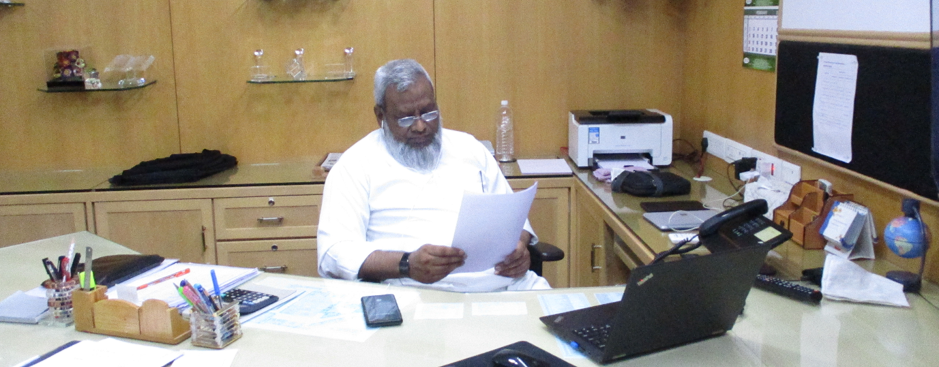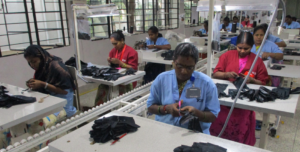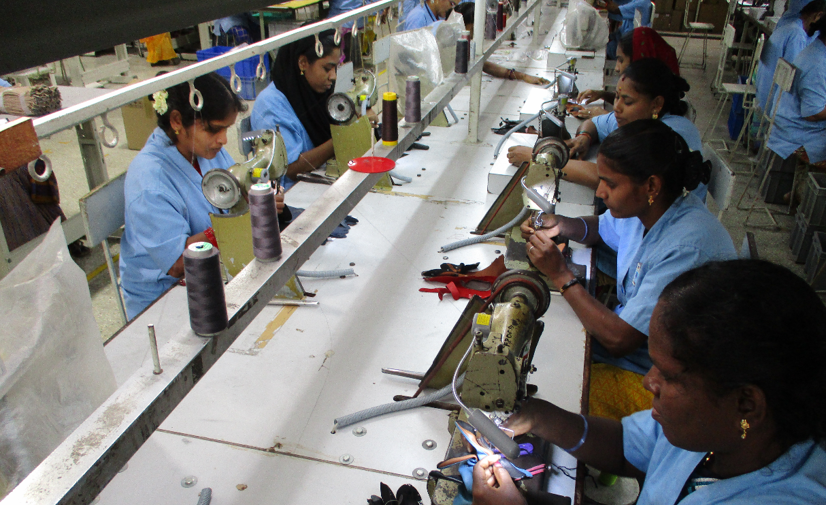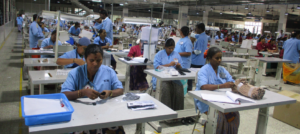



An interview with Mr. Junaid Ahmed, CEO, KH Group– Glove Division, Chennai, Tamil Nadu

K H Group is one of the leading manufacturers of a wide range of leather products. Their specialisation in glove making has uniquely positioned the company in international markets. We spoke to Mr. Junaid Ahmed, CEO, K H Group – Gloves Division, to learn more about the skills required in glove-making and how they’ve trained their workforce in the niche area and established themselves as a leader in the leather industry.

Please tell us more about K H Group.
This is a 75 year-old company; it started with tannery and it gradually entered into leather goods like small wallets, shoes, belts and later we moved into glove making. Tannery is not the same anymore as it was 30 years ago. Pollution has to be controlled and environmental conditions have to be protected and kept undisturbed.
How does K H Group prepare their workforce with skills and latest knowledge for different job roles?
We have a diverse range of products pertaining to tannery, footwear, leather goods, and gloves. Since the job roles differ, each job role requires a specific skill set. With this wide range of products, it is very important that our workforce is skilled and well-trained.
So we have our own training and HR team, who are dedicated to provide the required training to the workforce. Apart from our own training team, we are also getting a considerable amount of help from LSSC which is a motivating force for our workforce.
What kind of craft and skills are needed for glove making?
 We’ve been in the glove making business for the last 30 years. When we started in 1986, we had trainers from Philippines who trained our people in cutting operation which is quite intricate. Later, we came out with our own techniques and now we have in-house trainers, specialized in gloves.
We’ve been in the glove making business for the last 30 years. When we started in 1986, we had trainers from Philippines who trained our people in cutting operation which is quite intricate. Later, we came out with our own techniques and now we have in-house trainers, specialized in gloves.
People say that glove making is an art and it requires specifically trained workforce and a thorough knowledge of all the processes. Here, all the processes are entirely different yet closely connected with each other. Cutting and sewing requires a different setup; for example, Table Cutting, which is one of the ways of manual cutting.
What is the export potential? How do you foresee the business perspectives in glove making?
The potential for glove making is limited and it is more of a seasonal business as people wear gloves to protect themselves from harsh cold winter. Due to global warming, winter is not so prolonged and the weather is not that cold any more. This is the reason people are more inclined towards fabric and cheaper options when it comes to gloves production. As leather is more expensive, people are going for cheaper options. Now, we are diversifying with components of non-leather materials. The European market prefers authentic leather while the USA is more inclined towards non-leather, fabric and woolen gloves.
 How do you ensure your workforce gets benefitted by government skilling programs like RPL and apprenticeship?
How do you ensure your workforce gets benefitted by government skilling programs like RPL and apprenticeship?
We are aware about these programs and are continuously contributing towards making them successful. We have been participating actively in Recognition of Prior Learning (RPL) to build capacity. This also helps us cut down the long recruitment and training process to some extent. Leather Sector Skill Council (LSSC) has played a crucial role in keeping the industry updated about various skill development schemes like RPL and apprenticeships.
How do you ensure international quality and standards are adhered to in all your products?
 We also have a dedicated team for Quality Assurance. They are trained regularly through various leaning forums. We are serious about quality hence ensure that our customers get their desired products with the highest quality. Our workforce periodically updates themselves on quality requirements as per global standards.
We also have a dedicated team for Quality Assurance. They are trained regularly through various leaning forums. We are serious about quality hence ensure that our customers get their desired products with the highest quality. Our workforce periodically updates themselves on quality requirements as per global standards.
Now looking at the environmental conditions, we are directing our efforts towards making eco-friendly leather goods which are chrome-free and vegetable tanned leather which is not harmful to the ecosystem.
How do we attract the young generation to the leather and non-leather industry?
We already have students from various Institutions involved in different studies such as VSM, Lean management etc., and we also send some of our workforce to Italy for 3-month training. The youth can explore the opportunity for entrepreneurship in the leather and non-leather sector after completion of the training program.